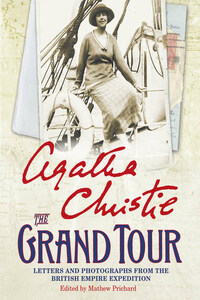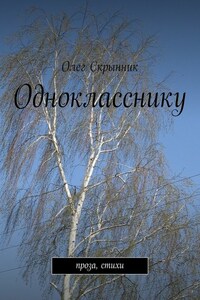COPYRIGHT
Published by HarperCollinsPublishers Ltd
1 London Bridge Street London SE1 9GF www.harpercollins.co.uk
First published by HarperCollinsPublishers 2012
THE GRAND TOUR. Copyright © 2012 by Christie Archive Trust. Excerpts from AGATHA CHRISTIE ™ An Autobiography copyright © 1977 by Agatha Christie Limited. Introduction and epilogue copyright © 2012 by Mathew Prichard.
Illustrations courtesy of the Christie Archive Trust.
Agatha Christie asserts the moral right to be identified as the author of this work.
A catalogue record for this book is available from the British Library.
Source ISBN 978-0-00-744768-8
Ebook Edition © DECEMBER 2012 ISBN: 9780007460694
Version: 2017-04-13
All rights reserved under International and Pan-American Copyright Conventions. By payment of the required fees, you have been granted the non-exclusive, non-transferable right to access and read the text of this e-book on-screen. No part of this text may be reproduced, transmitted, down-loaded, decompiled, reverse engineered, or stored in or introduced into any information storage and retrieval system, in any form or by any means, whether electronic or mechanical, now known or hereinafter invented, without the express written permission of HarperCollins e-books
INTRODUCTION
by Mathew Prichard
By an extraordinary coincidence, it is 20 January 2012 when I sit down to begin writing the introduction to my grandparents’ participation in the British Empire Exhibition Mission, known as the Grand Tour, which my grandmother, Agatha Christie, brought so vividly to life in the letters and photographs she sent back to her family. The tour left on 20 January 1922, exactly 90 years ago today.
I called my grandmother Nima, presumably a first childish attempt at ‘Grandma’, and through force of habit I will use this family name in this piece, although of course the events she chronicled took place many years before I was born!
We have to be grateful that these wonderful letters have survived at all. It has been a continual frustration to me, in browsing through family memorabilia, that there are quite a few lovely letters from well-known (and not so well-known) people to Nima, but far fewer of her own letters, which by definition are in the hands of the people to whom she wrote. Fortunately in this case, however, her mother, to whom she wrote the most frequently, did keep the letters; when she sadly died three or four years later, presumably Nima reclaimed them, for they have survived with the rest of the material left by what was, I can promise you, a prolific letter-writing family! As you will see, it was a marvellous bonus to read all the letters for the first time a year or two ago, to see the brief addresses, and to leaf through the old black-and-white photographs, painstakingly pasted into a couple of old photograph albums.
It goes without saying that the world we live in has changed out of all recognition in those 90 years – some would say particularly the places visited on the Empire Tour: South Africa, Australia, New Zealand, Hawaii, and Canada. Not only have the countries changed, but the way we communicate, the way we do business, the way we behave as families – indeed the whole social environment in which people like my grandparents existed has changed so much that it is almost unrecognizable. I think some of the circumstances surrounding the Tour and the people involved would probably have been regarded as fairly eccentric even by their contemporaries, but even so, I think the changes are still very remarkable.
For instance, apart from my grandparents, the chief character concerned, one Major E. A. Belcher, whose last job before initiating this tour was Controller of the Supplies of Potatoes, was obviously a seriously eccentric and difficult man, whose unpredictability and inefficiency sorely tried my grandparents throughout the whole tour. One suspects that his friend and colleagues must have breathed a sigh of relief when they heard that he planned to be out of the country for 10 months! Certainly, however, somebody retained some confidence in him, for the expenses of the trip were considerable – four to seven people’s upkeep for 10 months (minus a month’s holiday for my grandparents), ‘free’ passage on ships all the way round the world, ‘free’ internal travel in each of the countries, not to mention the fees paid to Belcher and my grandfather Archie. At the end of this book I have recorded some evidence about the 1924 British Empire Exhibition. But at the end of the day, who are we to complain – we have gained a charming, perceptive and unconsciously revealing document concerning life shortly after the First World War, written by an author whose gift for storytelling remains second to none from that time to this.














